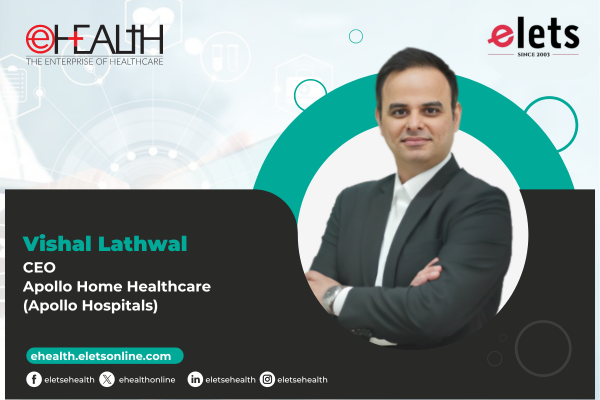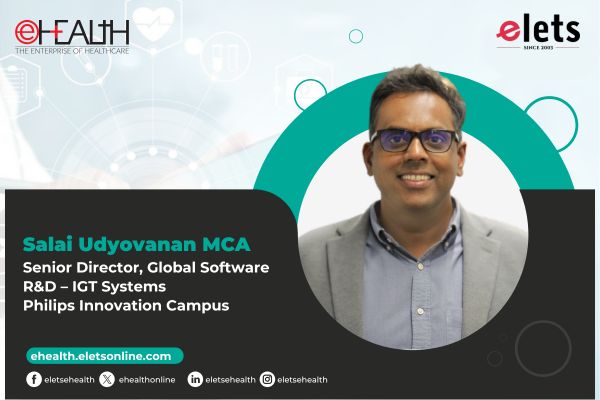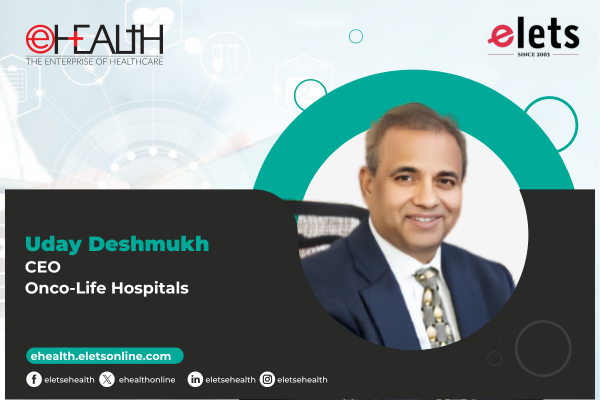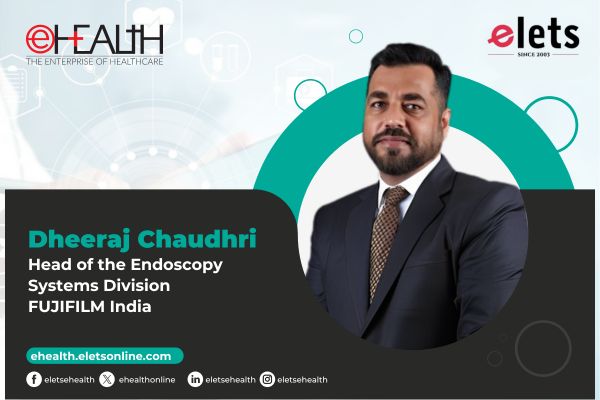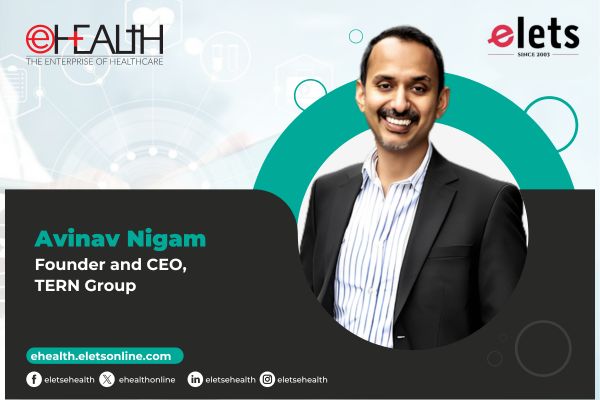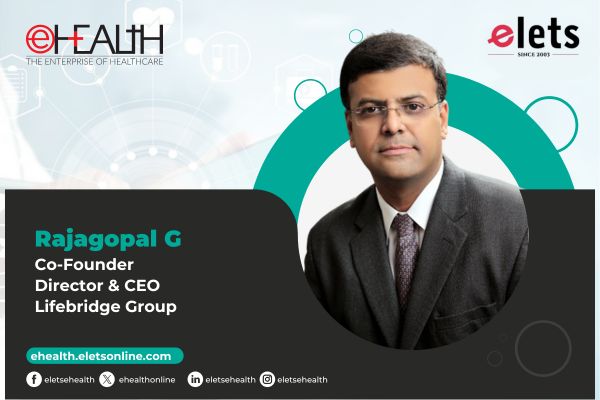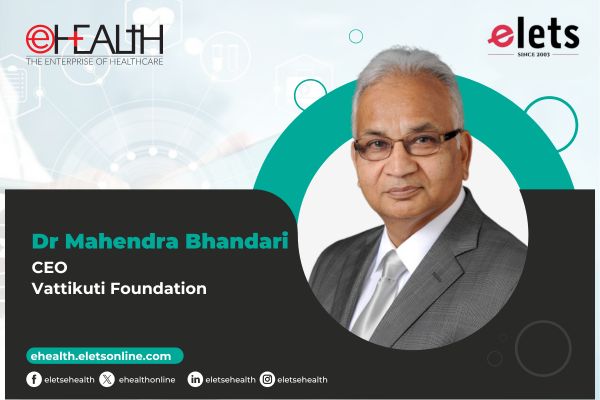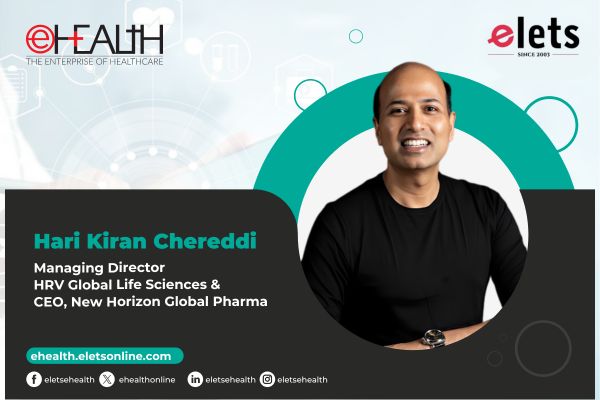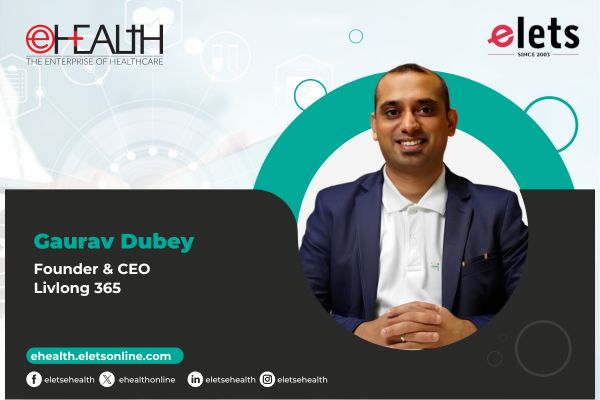One of the leaders in managing business processes, Genpact offers a broad portfolio of enterprise G&A and industry-specific services, coupled with strong IT, analytics and reengineering capabilities. The company has a strong presence in the healthcare space, as well.

In a conversation with eHEALTH, Tajinder Vohra, Senior Vice President at Genpact, provides key insights into Genpact’s offering in the healthcare space in the Indian market and highlights the emerging business opportunities.

Please share your perspective on the healthcare scenario in India vis-a vis the global scenario?

We have operated in both the markets – US & India and it wouldn’t be fair to compare the two. The healthcare BPO business in the US is more evolved; however it is still at a very nascent stage here. There is an increasing need to optimize patient care services at hospitals by utilizing existing resources, leading to an increased demand for process optimization services. Also, I believe that once healthcare insurance takes off in India, there will be a rise in the number of transactions, which might provide the requisite impetus for growth of healthcare outsourcing.

We at Genpact focus on both healthcare providers’ and healthcare payor’s space. In the providers’ space, hospitals require more analytics for expanding their revenues. New hospitals need guidance on how to price their packages and how to reach to the target audience. However, these services currently don’t exist in a sophisticated form. Further, there are health insurance bodies that take care of the entire back-end managing of the insurance policy.
Genpact has very well established and strong insurance capabilities. A lot of work on how to make hospitals better is being done by us in the US. We plan to get more aggressively involved in these services in India as companies here are becoming more open to growth and experimentation.
We have actively participated in the Indian healthcare market and in terms of growth this market is very good. Also, in the future, the Government will be spending more on building infrastructure in hospitals because of which, there is further scope for growth here.
Can you share some figures on the estimated size of the healthcare market?
It is difficult to estimate the overall size of the market. In hospitals, except for doctors and nurses, everything is highly segmented. According to industry sources, the Indian Healthcare market is expected to touch USD 77 billion by 2013. The several segments in the overall market comprise of the pharma sector, health insurance, analytics, and clinical research organisations, among others. Again, to estimate the share of the BPO market in this is difficult.
In terms of healthcare services, how are you positioned in India?
As a company, we have been providing healthcare services for about 17 years now.
We do most of the work for the hospitals in US, from India. Also, we have certain teams working in hospitals in the US and we are also using that talent for the Indian market. This is not to reduce the cost of operations, but to optimize services and provide a better patient experience. For perspective, Genpact has over 200 doctors and medical experts on staff, works across 30+ healthcare information systems and has completed over 28 hospital projects globally including in India, the US, Canada, Scotland and Ghana.
Please provide an overview of the services offered by you in the payors and the providers segment.
The services offered by Genpact in the provider space are based on the extensive healthcare expertise and experience that Genpact has to optimise and enhance provider operations. We are leveraging our Smart Enterprise Process (SEP) methodology to provide solutions across the entire Visit to Cash (V2C) lifecycle. We have deconstructed the provider space into three segments—patients flow, supplies flow and cash flow—which gives us a deep understanding of the needs of this space. We offer a complete range of services in this segment including—end-to-end hospital operating system implementation, capacity optimisation and asset utilisation, patient/employee safety, training, medical and non-medical supplies management and revenue cycle management. In addition, we focus on business outcomes like patient wait time, cash flow and total spend. The expertise we offer in this segment makes us a trusted partner of global healthcare providers.
In the payors’ segment, Genpact helps its clients to create a bottom line impact by reducing administrative and medical costs, increasing member enrollments and enhancing customer satisfaction in line with government rules and regulations. Genpact’s process centred approach helps in improving workflow and administrative processes that employ a combination of custom technology, trained staff and strict adherence to quality management.
This helps the clients in increasing productivity and decreasing costs. Our solutions in this segment include—claims administration, cost optimisation, health economics, membership management and process transformation services. We provide end-to-end claims administration to help optimize administrative processes including claims receipt, imaging, Optical Character Recognition (OCR), data entry, error resolution, medical review and real time adjudication focused on reducing cost per transaction. In addition, we analyse claims and identify recovery potential.
In the health economics space, we offer solutions for predictive modelling, disease management and outcome measurements that aid in decision making. For membership management, Genpact offers solutions for enrollments, premiums and credentialling. Genpact has the resources, tools and domain expertise to partner with payers to drive efficiencies, improve key business metrics and deliver business impact.
Can you share about your recent service implementations at some of the major hospitals in Delhi?
I am glad to share that, Genpact has successfully implemented process optimisation programs to enhance efficiency and improve patient experiences at Dr Ram Manohar Lohia and Lok Nayak Hospital in Delhi. The implementation of the pilot projects was done using the hospital operating system based on our Smart Enterprise Processes (SEPsm) methodology.
We have effectively optimised the hospitals’ layout to improve core clinical processes including optimising doctors’ time in order to enhance the care provided. The services offered by us have improved the patient flow by 30 percent and the doctors’ capacity by 20 percent in these hospitals. All this was achieved over a period of just 12-14 weeks.
We are excited about the opportunity that the Indian healthcare industry presents and believe that Genpact is best positioned to partner with hospitals in the country to create centers of excellence that will deliver premium patient care to citizens. Further, leveraging our unique Smart Enterprise Processes (SEPSM) methodology, we will be able to deliver significant value to this endeavor.
What are your services offerings in terms of RCM?
Hospitals in the US, especially the big players, have very complicated billing cycles. A large chuck of the payments in hospitals is tied to the cash collected. By implementing process optimisation, the hospitals can save somewhere around 20-25 percent. We at Genpact, have a huge analytics team that actually helps in managing policies thereby enhancing processes.
Including insurance requires a lot of off-shoring and transaction work. The problem is to bring in a new policy and manage it effectively. Issues like the yearly insurance subscription fee are difficult to address.
Genpact, as a company has immense knowledge and expertise in this segment as over the past ten years, we have built specific capabilities on how to optimise these processes and run them better.
As the demand for health insurance in India is increasing, the requirement for services offered by you in this space will also rise.
What are your comments on this?
Today, health insurance is gaining importance for an average Indian. If you are not insured, you must analyse the cost implications of availing good healthcare services. In the past, care was only available in government hospitals, but now one can experience the same level of care (if not better) at private hospitals. Higher costs at private hospitals have already pushed the demand for healthcare insurance; creating new business opportunities in the healthcare BPO industry. 
Be a part of Elets Collaborative Initiatives. Join Us for Upcoming Events and explore business opportunities. Like us on Facebook , connect with us on LinkedIn and follow us on Twitter , Instagram.
"Exciting news! Elets technomedia is now on WhatsApp Channels Subscribe today by clicking the link and stay updated with the latest insights!" Click here!






